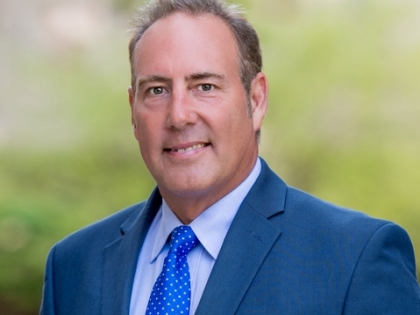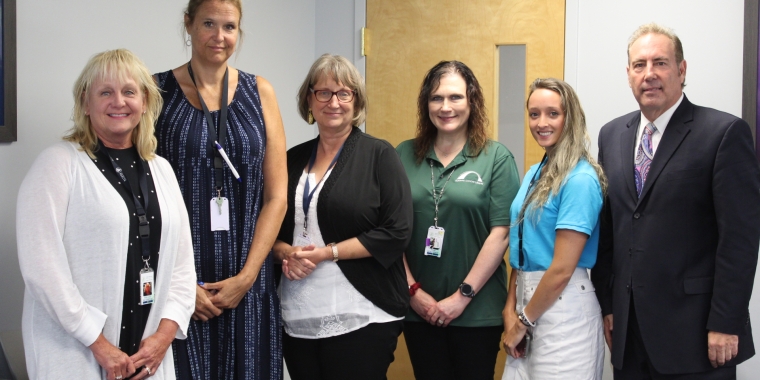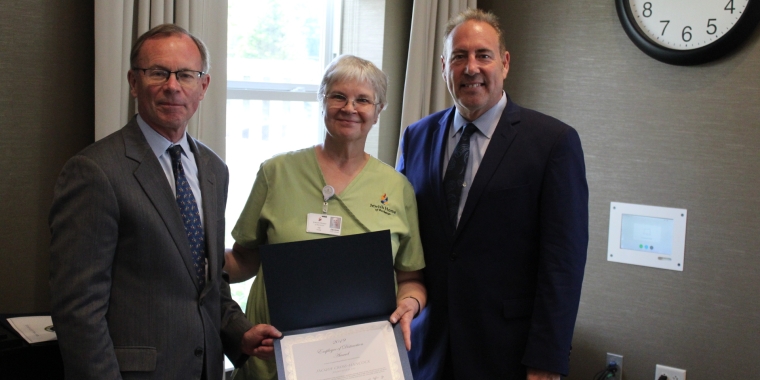
Senator Robach Encourages Mothers And Daughters To Participate In The Adelphi Ny "get A Mammogram Breast Cancer Campaign For Mother's Day"

The Adelphi NY Statewide Breast Cancer Hotline is reaching out to New Yorkers asking them to urge their loved ones to get mammograms.
"Around Mother’s Day we remind women about the importance of getting mammograms once a year, doing breast self exam and having their breasts examined regularly by a medical professional," says Hillary Rutter, the director of the breast cancer program. "Our motto is: "When you take care of yourself, you’re taking care of your family"
For more information and to locate an accredited mammography facility nearby, call the Adelphi New York Statewide Breast Cancer Hotline & Support Program at 800-877-8077. Callers with limited income can also find out about low cost and free mammograms throughout the hotline.
"Women are so busy taking care of their families that they often neglect taking care of themselves," stated Senator Robach. "As mother’s day approaches, I urge all women to take the opportunity to get screened for breast cancer and encourage their mothers, sisters and friends to do the same."
Risk Factors For Breast Cancer
There are certain characteristics that are associated with getting breast cancer. They include:
Age
- 77% of all breast cancer cases occur in women age 50 and older;Beginning menstrual periods before age 12;
Late age when menopause begins;
History
of breast cancer in close relative, such as a mother or sister;Never giving birth;
First giving birth after age 30; or
High radiation exposure
to the breast, which would occur if a woman had tuberculosis (TB) or scoliosis (curvature of the spine) and had many X-rays taken.Symptoms of Breast Cancer
Early breast cancer usually does not cause pain. In fact, when breast cancer first develops, there may be no symptoms at all. But as the cancer grows, it can cause changes that women should watch for:
A lump or thickening in or near the breast or in the underarm area.
A change in the size or shape of the breast.
A discharge from the nipple.
A change in the color or feel of the skin of the breast, areola, or nipple.
Physical Breast Examination
If you are over age 40, you should have a physical breast exam performed every year by your physician or other trained health professional. If you are between the ages of 20 and 40, this should be done once every three years. All women should do monthly breast self-examinations. Ask your health professional to provide you with information on BSE.
Mammography
A mammography or mammogram is an X-Ray of the breast tissue. A "screening" mammogram is one that is done when you do not have symptoms. This test can detect very small changes you cannot feel when examining your breasts.
A mammogram can find a lump up to two years before it would be large enough to be felt. It is important to know that a mammogram, like most medical tests, is not foolproof. Therefore, it is important to perform breast self exams as well as obtain regular mammographies.
New York state law requires most insurance companies to pay for mammograms. Specifically, the law requires insurance companies to pay for initial baseline mammograms for women between the ages of 35 and 39, and annual mammograms for women ages 40 and up, and more frequently upon a doctor’s recommendation.



